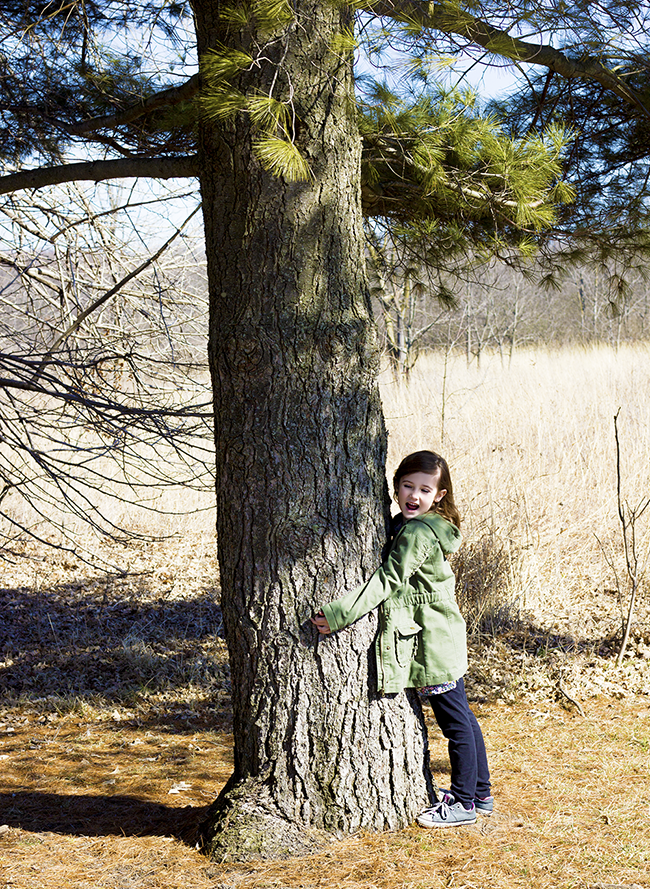I usually create similar posts to this around Earth Day, but this year I decided to wait until the usual Earth month excitement died down, as this is when people tend to forget about their resolutions to be more eco-friendly. My family and I do lead a fairly eco-conscious lifestyle, but we're certainly guilty of forgetting as well. Here are some reminders of easy ways for all of us to make a difference, right at home.
1. Turn off the water when brushing your teeth.
Shutting off the water while brushing your teeth can save as many as 200 gallons of water a month. Imagine how much water would be conserved if everyone did the same! This is a great one to teach your little ones as soon as they as old enough to brush.
2. Adjust your thermostat.
Lowering the thermostat by a few degrees in winter and raising by a few degrees in summer can make a big difference. You'd be surprised how quickly this adds up in terms of saving energy (and money!).
3. Reuse paper.
Reusing paper saves time, money, and the earth. The amount of junk mail we receive daily can be overwhelming, but those blank envelopes make great grocery lists, note paper, and scrap paper for the kids to color or practice school work. (Also make sure to recycled any mail you can't reuse, and choose to pay bills online.)
7. Wash clothes in cold water.
Hot water is not superior to cold water in terms of getting clothing clean, and 85% of the energy used when a washing machine washes clothing goes to heating the water.
8. Turn off your lights and use eco bulbs.
It takes a lot of energy to power lights, and there isn't a easier way to be eco-friendly than simply switching off a light when you leave a room.
Compact fluorescent lamps (CFLs), light emitting diodes (LEDs), and Halogen incandescent lightbulbs last 3 to 25 times longer than regular lightbulbs, so they're money savers and time savers. They also use 25% to 80% less energy than regular incandescent light bulbs, which is better for the environment. No brainer!
I hope these little reminders help you as much as they're helping us to make a difference!
ALSO FIND US HERE: INSTAGRAM // FACEBOOK // TWITTER // PINTEREST
Reusing paper saves time, money, and the earth. The amount of junk mail we receive daily can be overwhelming, but those blank envelopes make great grocery lists, note paper, and scrap paper for the kids to color or practice school work. (Also make sure to recycled any mail you can't reuse, and choose to pay bills online.)
4. Opt for reusable water bottles.
Disposable plastic water bottles are genuinely awful for the planet. Opt for reusable bottles instead. Every in our house has one. It's such an easy way to help eliminate the 2 million tons of discarded water bottles in landfills. (Ditch those single use plastic straws for reusable straws while you're at it!)
Disposable plastic water bottles are genuinely awful for the planet. Opt for reusable bottles instead. Every in our house has one. It's such an easy way to help eliminate the 2 million tons of discarded water bottles in landfills. (Ditch those single use plastic straws for reusable straws while you're at it!)
5. Grow your own food.
When you grow your own food (we love our little veggie and herb container garden!), you reduce your carbon footprint, and when you choose to grow organic, you avoid pesticides and other harmful chemicals. It's also a great way to teach your kids responsibility, and about where food originates.
6. Compost.
Composting reduces waste because you're reusing things that would normally be thrown away, and it helps your plants and gardens grow without the use of toxic fertilizers.
When you grow your own food (we love our little veggie and herb container garden!), you reduce your carbon footprint, and when you choose to grow organic, you avoid pesticides and other harmful chemicals. It's also a great way to teach your kids responsibility, and about where food originates.
6. Compost.
Composting reduces waste because you're reusing things that would normally be thrown away, and it helps your plants and gardens grow without the use of toxic fertilizers.
7. Wash clothes in cold water.
Hot water is not superior to cold water in terms of getting clothing clean, and 85% of the energy used when a washing machine washes clothing goes to heating the water.
It takes a lot of energy to power lights, and there isn't a easier way to be eco-friendly than simply switching off a light when you leave a room.
Compact fluorescent lamps (CFLs), light emitting diodes (LEDs), and Halogen incandescent lightbulbs last 3 to 25 times longer than regular lightbulbs, so they're money savers and time savers. They also use 25% to 80% less energy than regular incandescent light bulbs, which is better for the environment. No brainer!
I hope these little reminders help you as much as they're helping us to make a difference!
ALSO FIND US HERE: INSTAGRAM // FACEBOOK // TWITTER // PINTEREST
 |
FILED UNDER:
green living











0 COMMENTS SO FAR // SHARE YOUR THOUGHTS HERE:
Post a Comment
Thank you for commenting! We love reading your thoughts and we're grateful for your input. (All spam will be deleted.)